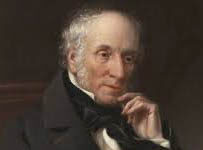The Influence of Literature on Shaping Socio-Political Realities
The Influence of Literature on Shaping Socio-Political Realities
The Influence of Literature on Shaping Socio-Political Realities
Literature, a powerful instrument akin to a skilled artisan’s brush, has long held the ability to shape and transform the very fabric of socio-political landscapes. Just as a mosaic artist intricately arranges tiles to compose an image, literature weaves narratives that often act as prisms through which society’s issues are refracted, illuminating the complexities and sparking change. Throughout history, literature has been a catalyst, a compass, and a mirror, reflecting and influencing the trajectory of socio-political phenomena.
Literature as a Catalyst for Awareness and Change: Imagine literature as a lantern guiding society through the uncharted waters of change. Literature has served as a clarion call, rousing public consciousness and fostering collective awareness. Just as an alarm awakens slumbering minds, Harriet Beecher Stowe’s novel “Uncle Tom’s Cabin” ignited the abolitionist movement in the 19th century United States. Through the harrowing tale of Tom’s life in slavery, Stowe’s words kindled empathy and urgency, hastening the demand for the end of such oppressive practices. This literary catalyst, akin to a rallying cry, galvanized society’s sentiments and spurred a wave of transformative change.
Literature as a Compass of Moral Values: Literature acts as a compass, guiding society’s moral course amidst tempestuous seas. Just as a compass points true north, literary works often navigate ethical dilemmas, offering guidance and insight. George Orwell’s “1984” serves as a compass, revealing the dangers of totalitarianism and the erosion of individual freedoms. Like a steadfast navigator, Orwell’s words steer readers’ moral compasses toward vigilance against the encroachment of oppressive regimes. The novel’s cautionary tale, much like a guiding beacon, underscores the importance of safeguarding individual liberties.
Literature as a Mirror Reflecting Society’s Woes: Literature functions as a mirror, reflecting the intricate tapestry of society’s joys, struggles, and flaws. Just as a mirror exposes every line and contour of a face, so does literature reveal the contours of societal issues. Upton Sinclair’s “The Jungle” serves as a mirror, laying bare the deplorable conditions of the meatpacking industry in early 20th century America. Sinclair’s vivid portrayal, much like a meticulously crafted mirror, forced society to confront the grim reality and spurred sweeping reforms in food safety regulations. The novel’s unflinching reflection catalyzed a transformation in both public perception and governmental action.
Literature as a Conduit for Empathy: Literature acts as a conduit for empathy, weaving threads that connect readers to the experiences of others. Just as a bridge spans chasms, literature bridges gaps of understanding and fosters compassion. Khaled Hosseini’s “The Kite Runner” immerses readers in the tumultuous reality of Afghanistan’s sociopolitical turmoil. Through the lens of characters Amir and Hassan, the narrative’s intricate stitching of emotions elicits empathy for the personal toll of conflict. Hosseini’s narrative bridge, like an outstretched hand, encourages readers to traverse the divide and immerse themselves in the lived experiences of those affected by larger political currents.
Literature as a Generator of Critical Discourse: Literature acts as a generator of critical discourse, sparking conversations that challenge the status quo. Just as a generator produces electricity, literary works generate intellectual energy. Achebe’s “Things Fall Apart” generates discourse about the impact of colonialism on African societies. The novel’s intricate web of characters and events generates conversations about cultural identity, colonization’s repercussions, and the dynamics of power. Achebe’s literary generator, much like a sparking generator, ignites discussions that contribute to a deeper understanding of history’s socio-political complexities.
Literature as a Medium for Subversive Ideas: Literature acts as a medium for subversion, sowing seeds of change that disrupt established norms. Just as a subversive agent infiltrates systems to effect change, so does literature challenge established ideologies. Margaret Atwood’s “The Handmaid’s Tale” serves as a subversive medium, dissecting the dystopian consequences of extreme religious fundamentalism. Atwood’s literary subversion, like an undercover agent, exposes the potential repercussions of unchecked power and serves as a cautionary narrative urging vigilance against erosion of civil liberties.
Literature as a Testament to Resilience: Literature captures the essence of resilience, embodying the strength to persevere in the face of adversity. Just as a sturdy tree withstands storms, literary works depict characters navigating socio-political upheavals. Chinua Achebe’s “Arrow of God” portrays the resilience of a traditional Igbo priest, Ezeulu, in the face of colonial encroachment. The novel’s resilient tapestry, much like a battle-worn banner, encapsulates Ezeulu’s struggles and underscores the tenacity required to navigate shifting political tides while preserving cultural heritage.
In conclusion, literature’s role in shaping socio-political phenomena is akin to an artist’s deft hand that sketches, shades, and transforms a canvas. Literature catalyzes awareness, serves as a moral compass, mirrors societal woes, fosters empathy, generates critical discourse, becomes a medium for subversion, and stands as a testament to resilience. Through its multifaceted roles, literature paints a narrative mosaic that captures the pulse of societies, illuminating the past, guiding the present, and shaping the future with its transformative influence. 0 0 0.
The Influence of Literature on Shaping Socio-Political Realities
N.B. The article ‘The Influence of Literature on Shaping Socio-Political Realities’ originally belongs to the book ‘The Origin Evolution & Functions of Literature‘ by Menonim Menonimus.
Books of Literary Criticism by M. Menonimus:
- World Short Story Criticism
- World Poetry Criticism
- World Drama Criticism
- World Novel Criticism
- World Essay Criticism
- Indian English Poetry Criticism
- Indian English Poets and Poetry Chief Features
- Emily Dickinson’s Poetry-A Thematic Study
- Walt Whitman’s Poetry-A Thematic Study
- Critical Essays on English Poetry
- Tawfiq al-Hakim’s Novel: Return of the Spirit-An Analytical Study
- Tawfiq al-Hakim’s Novel: ‘Yawmiyyat Naib Fil Arayaf’-An Analytical Study
- Analytical Studies of Some Arabic Short Stories
- A Brief History of Arabic Literature: Pre-Islamic Period (500 AD-622 AD)
- A Brief History of Arabic Literature: Early Islamic Period (622 AD-661 AD)
- Reviews on William Shakespeare’s Works
- Reviews of Charles Dickens’ Works
- Reviews of John Milton’s Literary Works
- Reviews of Some Iconic Travelogues
- Shakespeare’s Sonnets-Critical Studies
- Analytical Studies of Selected Poems of Sarojini Naidu
- Analytical Studies of Selected Poems of Rabindranath Tagore
- Analytical Studies of Selected Indian English Poems
- Reviews of Selected Motivational Books
- Origin Evolution & Functions of Literature …
Additional Searches::
- The Functions of Literature
- Evolutionary Literary Study
- Functions of Literature
- Principles of Literature
- Literary Theory
- Literature and Its Role in Shaping Society
- The Relationship of Literature and Society











